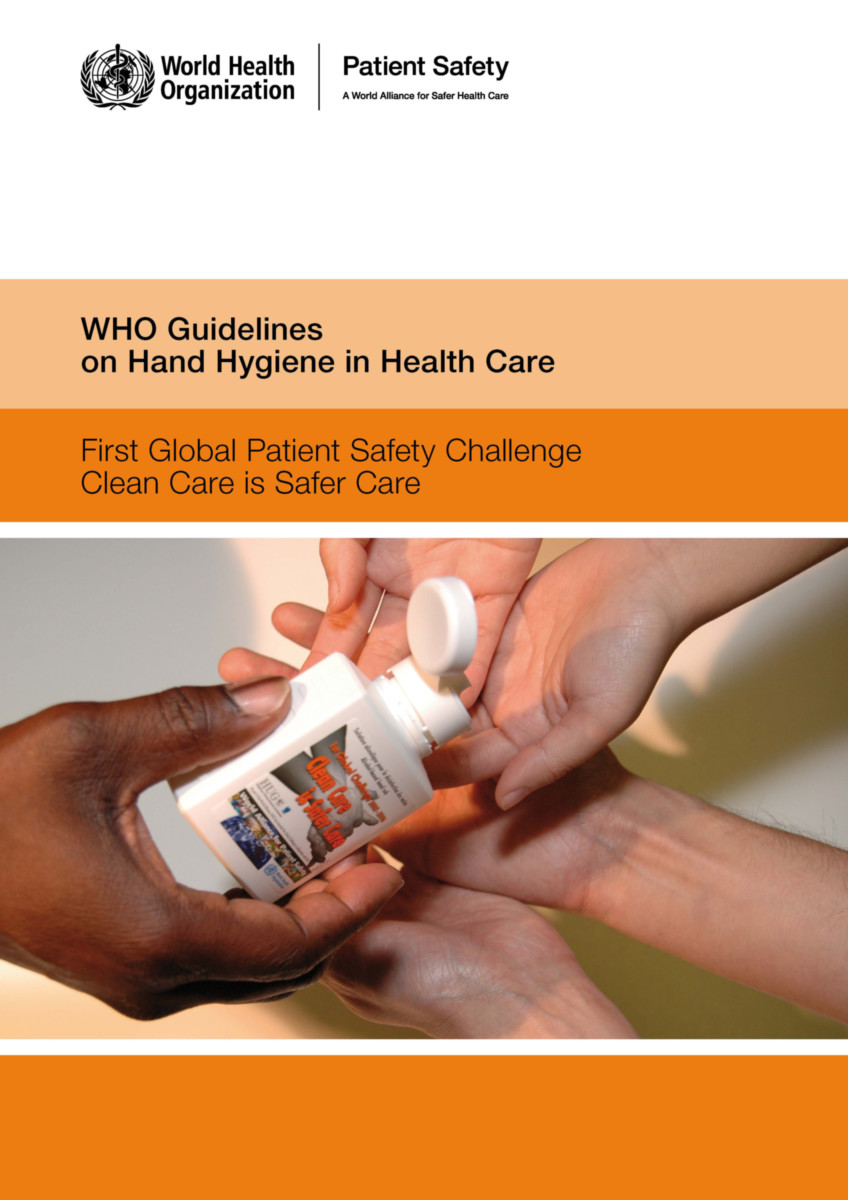WHO Guidelines on Hand Hygiene in Health Care
First Global Patient Safety Challenge Clean Care is Safer Care
- Publisher
World Health Organization - Published
17th September 2009 - ISBN 9789241597906
- Language English
- Pages 270 pp.
- Size 8.5" x 11.75"
- Images b/w photos, tables
The WHO Guidelines on Hand Hygiene in Health Care provide health-care workers (HCWs), hospital administrators and health authorities with a thorough review of evidence on hand hygiene in health care and specific recommendations to improve practices and reduce transmission of pathogenic microorganisms to patients and HCWs. The present Guidelines are intended to be implemented in any situation in which health care is delivered either to a patient or to a specific group in a population. Therefore, this concept applies to all settings where health care is permanently or occasionally performed, such as home care by birth attendants. Definitions of health-care settings are proposed in Appendix 1. These Guidelines and the associated WHO Multimodal Hand Hygiene Improvement Strategy and an Implementation Toolkit (http://www.who.int/gpsc/en/) are designed to offer health-care facilities in Member States a conceptual framework and practical tools for the application of recommendations in practice at the bedside. While ensuring consistency with the Guidelines recommendations, individual adaptation according to local regulations, settings, needs, and resources is desirable.
This extensive review includes in one document sufficient technical information to support training materials and help plan implementation strategies. The document comprises six parts.
World Health Organization
World Health Organization is a Specialized Agency of the United Nations, charged to act as the world's directing and coordinating authority on questions of human health. It is responsible for providing leadership on global health matters, shaping the health research agenda, setting norms and standards, articulating evidence-based policy options, providing technical support to countries, and monitoring and assessing health trends.


